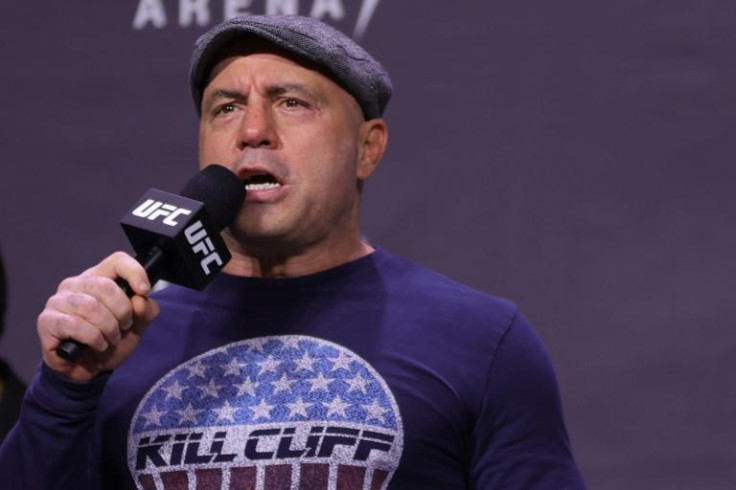Is Joe Rogan Onto Something About Epstein? Trump's DOJ Now Linked to 'Missing' Surveillance Mystery
Metadata analysis suggests video was edited, contradicting earlier DOJ claims about its completeness

Joe Rogan, the American podcast host and media figure, has publicly criticised the US Department of Justice (DOJ) over its handling of evidence in the Jeffrey Epstein case. His remarks have reignited scrutiny surrounding the high-profile financier's death in federal custody, particularly in relation to discrepancies in prison surveillance footage.
Speaking in a July episode of The Joe Rogan Experience, Rogan referenced a one-minute gap in the video meant to document Epstein's final moments, calling the situation 'blatant gaslighting.' The comments have been widely interpreted as a break from Rogan's previous alignment with Trump-era political figures and policies.
Rogan Raises Red Flags Over Missing Footage
Rogan's discussion followed an earlier interview with FBI official Kash Patel, during which he expressed deep concern about the alleged editing of surveillance materials from Epstein's prison cell. He told listeners, 'That is your line in the sand,' signalling what many interpreted as a pivotal shift in his stance towards the Trump administration's credibility.
In another interview joined by former CIA officer Mike Baker, Rogan criticised the lack of transparency and called for the release of all documents tied to Epstein's death. Their comments quickly circulated through conservative media, reigniting debate across political lines.
Evidence of Edited Video Fuels Skepticism
An investigation by Wired found that nearly three minutes of footage were missing from the publicly released surveillance video, despite previous DOJ claims of only a one-minute gap. Metadata analysis suggested the file had been altered using editing software, raising further doubts over the video's authenticity.
Additional reporting from CBS News and People cited anonymous sources within federal agencies claiming that unedited versions of the footage still exist but have not been made public. The revelations have intensified calls for greater transparency in how the case has been handled.
Public Opinion Shifting Sharply
A Washington Post poll conducted on 28 July found that 64% of Americans are following the Epstein case, with only 15% accepting the official ruling of suicide. A significant 44% believe Epstein was murdered, while 42% remain unsure.
The survey also revealed broad bipartisan support for full disclosure, with most respondents saying they believe unreleased files could implicate powerful individuals, including President Donald Trump. Growing pressure from the public and advocacy groups has placed further strain on federal institutions to open up the investigation.
I know many MAGA that are completely done with Trump. They've finally figured out what a lying lowlife he is and they're coming to terms with his extreme fraud and corruption.
— 𝓜𝓪𝓻𝓲𝓪 𝓢𝓪𝓷𝓽𝓸𝓼 (@MariaSantosOKC) July 19, 2025
I thought Trump was the better candidate over Kamala Harris for president, but so far what has he done 🤷🏾
— james witherspon (@rockw61) July 20, 2025
Even Joe Rogan’s calling BS on Trump’s Epstein cover story. When your favorite chaos podcaster starts sounding like the voice of reason, maybe the lies aren’t holding up so well. “Can’t find the files”? Please. That trick’s older than his spray tan.
— Chetter 📢🗽⚖💙 Beacon for Democracy (@ChetterHub) July 18, 2025
Holds Firm, But Congressional Pressure Builds
Despite mounting criticism, US Attorney General Pam Bondi in early July reaffirmed the DOJ's decision not to release additional Epstein-related materials, citing victim privacy and a lack of new evidence. Earlier speculation had suggested that documents such as flight logs or a so-called 'client list' might surface, but no such disclosures have materialised.
A federal judge in Florida also recently blocked a Trump-era motion to unseal grand jury materials linked to the case, citing legal constraints. Nevertheless, the House Oversight Committee has begun issuing subpoenas in an effort to access sealed records and assess the DOJ's conduct, AP News reported.
As public interest intensifies and lawmakers demand answers, Rogan's intervention has added momentum to a broader push for transparency. However, significant legal and procedural barriers remain in place.
© Copyright IBTimes 2025. All rights reserved.





















